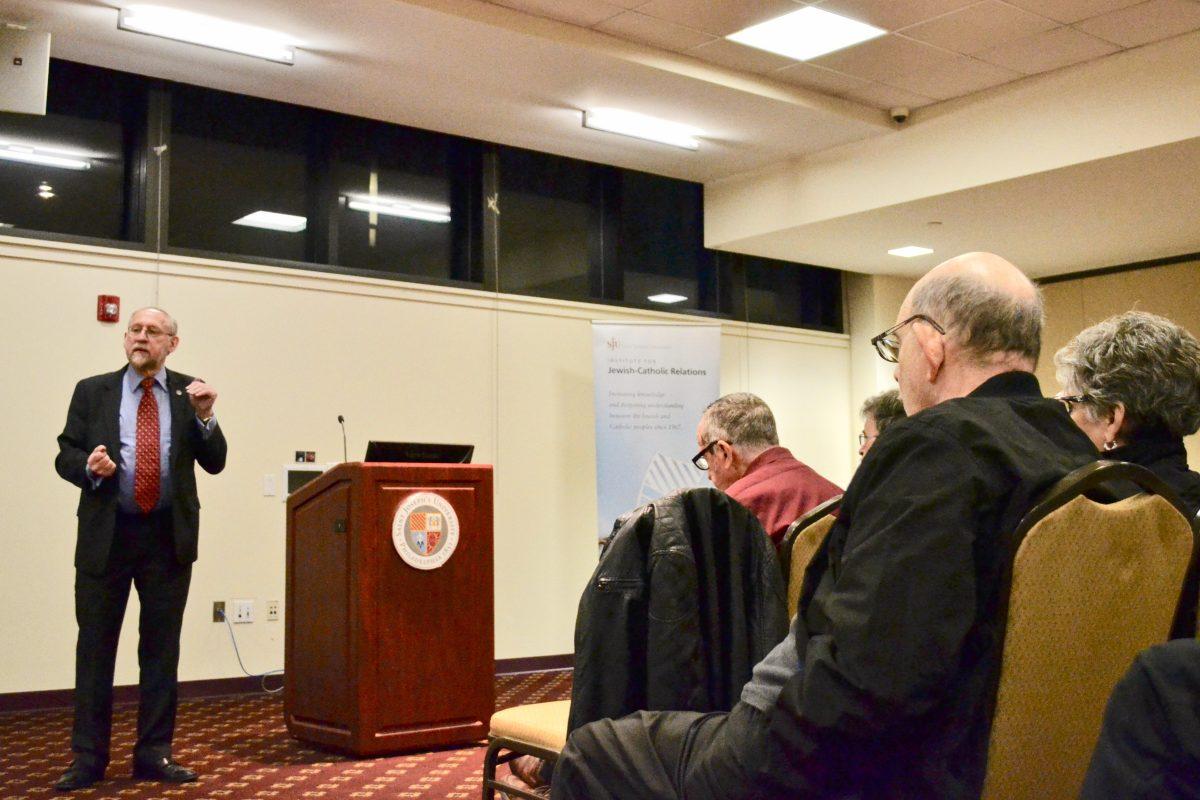The Institute for Jewish-Catholic Relations hosted a lecture on Nov. 6 in Doyle Banquet Hall North about how the Bible was used to sanction slavery.
Paul Finkelman, Ph.D., spoke to the audience about the justifications that religious slaveholders would use to defend slavery. Finkelman said slavery is not prohibited anywhere in the Bible, and there are no records of the Vatican ever condemning slavery.
“The Vatican not only supports slavery, but the Vatican in fact becomes the owner of slaves and as late as the 18th century there are slaves held in the Vatican,” Finkelman said.
Finkelman said during the Civil War, abolitionist ministers in the North would denounce southerners as bad Christians because they owned slaves.
“Southerners said, ‘Show us the part of the New Testament, show us where Jesus condemns slavery, show us where the apostles condemn slavery,’” Finkelman said. “You don’t find it.”
Finkelman said southern slave owners would use passages in the Bible to justify the institution of slavery, specifically referencing a story from the Bible when a slave ran away from his master to St. Paul the apostle seeking protection. However, Paul ultimately ignored the slave’s pleas and sent him back to his master.
“When northerners refused to help return runaway slaves,” Finkelman said, “Southerners in the United States said, ‘You folks are lousy Christians, if it was good enough for St. Paul, it ought to be good enough for you.’”
Tom Brennan, S.J., English department chair, said the use of passages in the Bible to condone things like slavery is a misuse of religion.
“If there are places where you think that slavery is being directly or indirectly condoned, you should talk about them,” Brennan said. “I think that’s part of the reason why we have theology and scripture classes here. That’s a place where these things can be discussed.”
Finn Hunsaker ’21 attended Finkelman’s lecture and said it is important to note that in order for the Jesuits and St. Joe’s to be taken seriously, they cannot avoid their past ties with racism and slavery.
“We have to say these things are wrong, we know why they’re wrong, and even if there isn’t evidence [in the Bible], we have to move against them,” Hunsaker said. “This talk brings that point out that even though there is no direct contradiction to slavery in the Old and New Testament, they are still wrong.”
Kelsey Welsh ’22, a political science major, said since most Jesuit universities tend to be primarily white institutions, they have even more of a duty to educate their communities about the past.
“I think the best way to go about the Jesuit mission is to learn, educate yourself about it,” Welsh said. “Take accountability, acknowledge it, and then based on the history figure out how to go forward.”
Finkelman said no one today is guilty for the contributions that their ancestors made to slavery, but St. Joe’s and the Jesuits have to look into their pasts and continue educating themselves on their ties to history.
“You are not responsible for what your ancestors did,” Finkelman said. “But we all have a moral obligation to clean up the mess our ancestors left us, and you can’t understand what you have to clean up until you understand how we got there.”
Emily Graham ’20 contributed to this story.















































